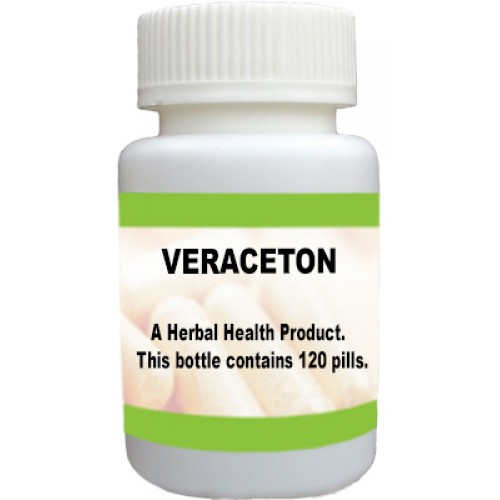Avoid These Foods if You Have Polycythemia Vera

Polycythemia vera is a rare blood disorder in which the body produces too many red blood cells. While there is no known cure for this condition, there are Polycythemia Natural Treatment that can help manage its symptoms. Eating certain foods can help reduce inflammation and improve overall health, while other foods can worsen the condition. What foods to avoid if you have polycythemia vera in order to support a Polycythemia Natural Treatment and find a Polycythemia Vera Natural Cure.
What is Polycythemia Vera?
Polycythemia vera is a rare blood disorder characterized by the overproduction of red blood cells in the body. It falls under the umbrella of myeloproliferative neoplasms, a group of disorders that involve the excessive growth of blood cells. Although the exact cause of polycythemia vera is unknown, researchers believe that it is related to a mutation in the JAK2 gene.
One important thing to note is that polycythemia vera is not contagious. It is a chronic condition that typically develops slowly over time and affects older individuals, with men being slightly more prone to the disorder than women.
The excessive production of red blood cells in polycythemia vera can lead to a variety of symptoms, including fatigue, headaches, itching, dizziness, and shortness of breath. In some cases, it can also increase the risk of blood clots, which can be dangerous.
Proper diagnosis and management of polycythemia vera are essential to prevent complications and improve overall quality of life. This includes adopting a healthy lifestyle, managing stress levels, and making dietary changes, which we will discuss in the next section.
The Role of Diet in Polycythemia Vera Management
A healthy diet plays a crucial role in the management of polycythemia vera. By making smart food choices, individuals with this condition can help alleviate symptoms and improve overall well-being. While there is no specific diet for polycythemia vera, certain dietary considerations can be beneficial.
Firstly, incorporating anti-inflammatory foods into your diet can be beneficial for managing polycythemia vera. Foods such as fatty fish, leafy greens, and berries are known to have anti-inflammatory properties. These foods can help reduce inflammation in the body, which is often heightened in individuals with polycythemia vera.
Additionally, maintaining a well-balanced diet rich in essential nutrients is important. Including a variety of fruits, vegetables, whole grains, and lean proteins can ensure that your body receives all the necessary vitamins and minerals. Adequate hydration is also key in supporting healthy blood circulation.
It’s also crucial to limit the intake of foods that may worsen inflammation and increase the risk of complications. This includes avoiding processed foods, high-sodium snacks, and sugary treats. Alcohol and red meat consumption should also be limited, as they can contribute to inflammation and other health issues.
While diet alone Polycythemia Vera Natural Cure, it can certainly support a Polycythemia Natural Treatment approach. By making conscious food choices, individuals with this condition can optimize their overall health and well-being. Remember, always consult with a healthcare professional or a registered dietitian before making any major dietary changes.
Keep reading to discover the foods you should avoid if you have polycythemia vera.
Foods to Avoid for Polycythemia Vera
Veraceton vera. Is Polycythemia Vera contagious? Now that we have explored what polycythemia vera is and the role of diet in managing this condition, let’s dive into the foods that individuals with polycythemia vera should avoid. These foods can exacerbate inflammation and increase the risk of complications.
First on the list is red meat. Consuming red meat, such as beef, lamb, and pork, can contribute to inflammation in the body. It is best to limit or avoid these meats and opt for lean protein sources like poultry, fish, or plant-based proteins.
Next up are fried foods. Foods that are deep-fried or cooked in unhealthy oils can also promote inflammation. Avoid foods like French fries, fried chicken, and onion rings, and instead opt for baked, grilled, or steamed options.
High sodium snacks and processed foods should also be avoided. These foods are often packed with additives and preservatives, which can contribute to inflammation. Instead, choose whole foods and read labels to ensure you’re making healthy choices.
Alcohol should be consumed in moderation or avoided altogether. Alcohol can affect blood cell production and increase the risk of complications in individuals with polycythemia vera. Opt for non-alcoholic alternatives or limit alcohol consumption to occasional special occasions.
Lastly, reduce your intake of sugary treats. Foods high in sugar can contribute to inflammation and negatively impact overall health. Choose natural sweeteners like honey or opt for fresh fruit for a healthier alternative.
By avoiding these foods and making smart food choices, individuals with polycythemia vera can support a Polycythemia Natural Treatment approach and improve their overall well-being. Remember, always consult with a healthcare professional or registered dietitian for personalized advice.
Red Meat
Red meat, such as beef, lamb, and pork, should be avoided if you have polycythemia vera. While it may be tempting to indulge in a juicy steak or a flavorful burger, consuming red meat can worsen inflammation in the body. This can be particularly problematic for individuals with polycythemia vera, as inflammation is already heightened in their bodies.
Red meat contains high levels of saturated fat, which has been linked to increased inflammation and a higher risk of cardiovascular disease. Additionally, it is rich in heme iron, which has been shown to promote oxidative stress and inflammation.
Instead of red meat, opt for lean protein sources like poultry, fish, or plant-based proteins. These alternatives are lower in saturated fat and can provide the necessary nutrients without exacerbating inflammation. Incorporating more fish, such as salmon or tuna, can be especially beneficial as they are rich in omega-3 fatty acids, which have anti-inflammatory properties.
Remember, always consult with a healthcare professional or registered dietitian for personalized advice on how to best manage your polycythemia vera through diet.
Fried Foods
Fried foods may be delicious, but they should be avoided if you have polycythemia vera. These crispy, deep-fried delights can be detrimental to your health and exacerbate inflammation in the body. In individuals with polycythemia vera, where inflammation is already heightened, consuming fried foods can lead to even more discomfort and complications.
When foods are deep-fried, they absorb unhealthy oils that can promote inflammation. French fries, fried chicken, and onion rings are just a few examples of these tempting treats. However, it’s important to resist the temptation and choose healthier alternatives instead.
Baked, grilled, or steamed options can provide the same deliciousness without the negative effects on your health. These cooking methods allow the food to retain its natural flavors while minimizing the use of unhealthy oils. So, next time you’re craving something crunchy, consider oven-baked sweet potato fries or grilled chicken strips instead of reaching for the deep-fried options.
Remember, always consult with a healthcare professional or registered dietitian for personalized advice on how to best manage your polycythemia vera through diet. By avoiding fried foods and making smarter choices, you can support your Polycythemia Natural Treatment approach and improve your overall well-being.
Salt and Processed Foods
Veraceton! Now that we have covered red meat and fried foods, let’s move on to another important category of foods to avoid if you have polycythemia vera: salt and processed foods. These sneaky culprits can wreak havoc on your health and worsen inflammation in the body, making them a no-go for individuals with this condition.
Salt is a major contributor to high blood pressure, and excessive sodium intake can put strain on your cardiovascular system. This can be particularly risky for individuals with polycythemia vera, as they are already at a higher risk for blood clotting and other cardiovascular complications. Processed foods, on the other hand, are typically loaded with sodium, preservatives, and other additives that can further exacerbate inflammation and other symptoms.
So, it’s crucial to read labels carefully and choose whole foods whenever possible. Opt for fresh fruits and vegetables, whole grains, and lean proteins. These foods are naturally low in sodium and contain important nutrients that can support a healthy blood circulation. Remember, always consult with a healthcare professional or registered dietitian for personalized advice on managing your polycythemia vera through diet.
Alcohol
Alcohol, unfortunately, is not a friend to those with polycythemia vera. Veraceton! While it may be tempting to unwind with a drink after a long day, individuals with this condition should exercise caution when it comes to alcohol consumption. Is Polycythemia Vera Contagious? No, but alcohol can exacerbate symptoms and increase the risk of complications.
Alcohol has a negative impact on blood cell production and can disrupt the delicate balance of your body. It can also lead to dehydration, which can further exacerbate symptoms like fatigue and dizziness. Additionally, excessive alcohol intake can increase the risk of blood clots, which is a major concern for individuals with polycythemia vera.
If you choose to consume alcohol, moderation is key. It’s important to consult with a healthcare professional or registered dietitian to determine what is considered moderate alcohol consumption for your specific condition. In some cases, it may be best to avoid alcohol altogether to minimize the potential risks.
Remember, the goal is to support a Polycythemia Natural Treatment approach and improve your overall well-being. Always prioritize your health and make conscious decisions regarding alcohol consumption.
Sugar
Sugar, oh sugar. It’s sweet and tempting, but unfortunately, it’s not the best friend for individuals with polycythemia vera. Sugar can exacerbate inflammation in the body, which is already heightened in individuals with this condition. That means it’s time to put those sugary treats aside and opt for healthier alternatives.
High sugar intake has been linked to various health issues, including increased inflammation and a higher risk of cardiovascular disease. For individuals with polycythemia vera, managing inflammation is crucial for overall well-being. That means avoiding foods and drinks that are high in added sugars.
Instead of reaching for that soda or sugary snack, opt for natural sweeteners like honey or choose fresh fruits as a healthier alternative. Not only will you be reducing your sugar intake, but you’ll also be getting important vitamins and minerals from these whole foods.
Remember, moderation is key. It’s important to consult with a healthcare professional or registered dietitian to determine how much sugar is acceptable for your specific condition. By making conscious choices and reducing your sugar intake, you can support your Polycythemia Natural Treatment approach and improve your overall health. So, go ahead and satisfy your sweet tooth with healthier options.
Other Considerations for a Healthy Diet with Polycythemia Vera
When managing your diet with polycythemia vera, there are a few other considerations to keep in mind. First and foremost, staying hydrated is crucial. Drinking enough water helps maintain healthy blood circulation and prevents complications. Aim for at least 8 glasses of water per day, or more if you’re physically active.
In addition to hydration, portion control is important. While it’s essential to make healthy food choices, it’s equally important not to overeat. Maintaining a healthy weight can help reduce inflammation and improve overall well-being.
Another consideration is to eat frequent, smaller meals throughout the day. This can help prevent spikes in blood sugar levels and promote steady energy levels. It’s also a good idea to eat slowly and mindfully, paying attention to your body’s hunger and fullness cues.
Lastly, keep in mind that diet Polycythemia Vera Natural Cure. It’s important to follow a holistic treatment approach that includes regular medical check-ups, prescribed medications, and lifestyle modifications. Always consult with a healthcare professional or registered dietitian for personalized advice on managing your polycythemia vera through diet. Remember, taking care of yourself and making conscious choices is key to supporting a Polycythemia Natural Treatment approach and improving your overall health and well-being.





